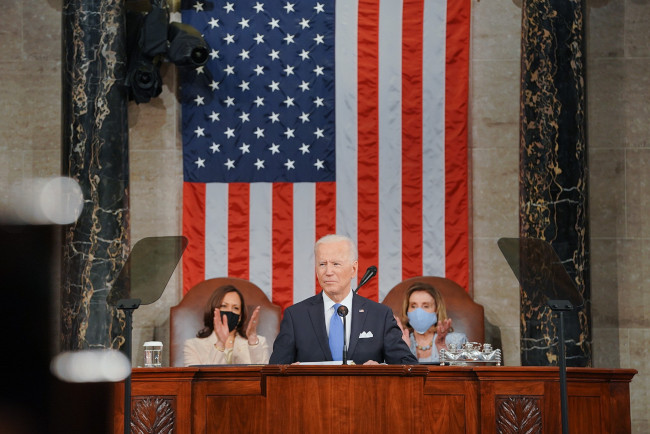We Can’t All Get Along -- Remembering Rodney King’s Forsaken Plea

Opinion:
What struck me immediately in what I initially thought would be a day of enduring bureaucracy at its finest was witnessing a group of kids in a situation where they cooperated and helped each other out, which is what’s referred to as “acting like an adult.”
I say this after guiding my relatives, visitors from out of town, to a foreign country’s embassy in Washington D.C. The family, consisting of father and mother and their two young children, had driven all night from Florida to have their passports renewed and then to return home early the next morning.
My hope was to just get this document process over with as quickly as possible and that no complications would arise to make the family’s 12-hour, 706-mile odyssey to D.C. an exercise in futility.
But as John Lennon once said, “Life is what happens when you’re busy making other plans.” In this case, I found what happened was totally unexpected in this most prosaic of settings.

After we arrived at the embassy’s passport office, the proceedings that followed prompted me to remember Rodney King, the victim of police brutality in Los Angeles in 1991. Later, after he had recovered from the attack, King asked the iconic question in reaction to rioting in South Central Los Angeles in 1992, “People, I just want to say, can we all get along?”
It was only a few seconds after the tedious passport renewal process was to begin at the embassy that the family’s two young children had already found ways to entertain themselves. They sat down at a table with other children playing with a Lego set filled with building blocks and bricks. For them, this place represented just another chance to have fun.
It was the parents who had to endure the patience of Job while they waited to get their documents stamped and the families’ pictures taken for their passports.
When I see a group of kids together, I think of Lord of the Flies, about a bunch of schoolboys marooned on an uninhabited island and their disastrous attempts to govern themselves.

But what intrigued me was that this was no Lord of the Flies scenario. Rather, these kids, initially strangers, became immediately engaged in a group project to put the building sets together in what I would term an illuminating model of cooperation.
One little boy, who couldn't have been much older than 4, introduced himself to my relatives’ daughter and then asked, “What’s your name? How old are you?”
The daughter, who’s 8 and rather shy, offered a cautious smile but didn’t immediately reply to his questions. After she got more comfortable, she acted with a sense of immense purpose and determination to tutor this younger kid on how one of the blocks was supposed to fit into another block. I was impressed by this boy thanking the girl for her help. Then he asked my relatives’ son, who’s 5, to help him construct the next block formation. What was striking is how easily they cooperated in their joint project.
This example of getting along came in marked contrast to how some legislators in Congress (mis)behaved during President Biden’s February 7 State of the Union address. As Biden talked about how a minority of GOP members aimed to cut spending for the Social Security and Medicare programs, Rep. Marjorie Taylor Greene and a few of her fellow Republicans interrupted the speech by booing, shouting out rude objections, and generally making fools of themselves.

“Liar,” Greene repeatedly yelled at Biden from the back of the House chamber, as she leaped up gesturing with a thumbs down.
The outburst by Greene and other brats prompted former Republican Congressman Adam Kinzinger to remark after the speech: “My fellow Republicans...you really want this as a role model for your kids? Do you really think the next generation will want to be part of this? I don’t think so.”
The shouting conjured up that old saying that it’s “better to remain silent and be thought a fool than to speak and to remove all doubt.”
It was also a reminder of another act of an adult’s incivility back in 2009 when Republican Congressman Joe Wilson shouted at then President Barack Obama, “You Lie,” during Obama’s healthcare speech to Congress. After the speech, members of both parties condemned the heckling. Wilson subsequently apologized for his outburst by saying he allowed his emotions to get the best of him.

Not all the children playing at the building-blocks table could maintain their mature behavior after being thrown into an unfamiliar situation. One girl, probably 3 or 4, started throwing a tantrum when the mother pulled her away to have her picture taken.
The girl, I think, was particularly upset about not being allowed to play with her new-found friends. She cried the equivalent of “let me stay here,” but to no avail. Welcome to the adult world, I thought as the camera snapped her photo. Immediately after, she stopped crying and raced back to rejoin her playmates.
Upon our departure, their little boy offered heartfelt goodbyes to his new friends. The friends offered their own endearing goodbyes and that maybe they would see each other again.
Watching how these kids made instant friendships and then had to leave each other reminded me of Shakespeare’s quote from Romeo and Juliet that “parting is such sweet sorrow.”
But the little boy and girl from my relatives’ family left with smiles on their faces. They were vivid and gratifying answers to Rodney King’s immortal question of “Can we all get along?”

Author Bio:
Eric Green, a Highbrow Magazine contributor, is a former newspaper reporter, U.S. congressional press aide, English-as-a-second-language teacher, and now a freelance writer in the Washington D.C. area. His articles have appeared in various newspapers and websites, including the Washington Post and Baltimore Sun.
For Highbrow Magazine
Image Sources:
--Victoria Watercolor (Pixabay, Creative Commons)
--12019 (Pixabay, Creative Commons)
--Geralt (Pixabay, Creative Commons)
--Justin Hoch (Wikimedia, Creative Commons)
--12019 (Pixabay, Creative Commons)
--The White House (Wikimedia.org, Creative Commons)































































































































































































































































































































